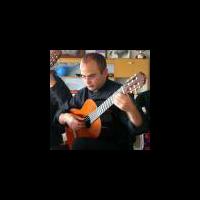Meldinger: 5
Språk: English
Salmeren (Å vise profilen) 2013 3 12 19:12:02
Ugrande (Å vise profilen) 2013 3 12 20:55:55
Salmeren:Hey guys, I'm new to the site and new to Esperanto, and I'd like some Skype partners to practice with,my skype id is conner.tucker3 and also, having just started Esperanto, it sounds very Spanish-like to me, and i was curious if anyone could tell me some of the differences between the languagesHi! Esperanto is a language that was created to somewhat congregate phonetics, simplify grammar (with no "exceptions to the rule") and void of history and culture EXCEPT its own.
A Spanish language (or any other language for that matter) has foreign language and cultural influences throughout history so, the native speaker has the caracteristic difficulty in speaking and understanding foreign languages.
I hope I had shed some light on this!
PS: Pardonu ĉiuj esperantisto per skribi angla!
jchthys (Å vise profilen) 2013 3 13 00:03:35
yyaann (Å vise profilen) 2013 3 13 00:30:39
Salmeren:having just started Esperanto, it sounds very Spanish-like to me, and i was curious if anyone could tell me some of the differences between the languagesFrom the most superficial to the most fudamental differences (if it gets boring to you, I would recommend to read only the three last paragraph, the content of which I feel is the most important) :
- The words originate from several European languages, some of which are not romance (Spanish is a romance language) . Among its main sources are Latin, French, English, German and Russian.
Among the words that strike as nonromance are "Flughaveno" (Spanish: aeropuerto), "bleki" (Spanish: gritar), ŝpari (ahorrar), "ŝtalo" (acero), ... just to name a few.
- The spelling, with its diactrics, looks more Slavic than Hispanic e.g. in words such as: baldaŭ, ĉemizo, ŝato, ĥemio, etc.
- Some of the basic grammar is reminiscent of Germanic languages. Among other features, the adjective usually goes before, and not after, the noun.
Esperanto: "La maljuna viro" (the old man) . Spanish "El hombre viejo" (The man old) .
Also, by attaching two words together, new words can be formed, which is hardly ever done in romance languages:
"flugo" (flight) + "haveno" (harbour) = "flughaveno" (airport) .
- With its series of productive affixes you can form even more new words with a lot of subtle nuances. This make Esperanto close to agglutinative languages such as Turkish and Japanese.
Example based on the suffixes -in-, -id-, -ej-, -ar- and -ist- :
ŝafo (sheep), ŝafino (female sheep), ŝafido (lamb), ŝafejo, (fold), ŝafaro (flock), ŝafisto (shepherd) .
bovo (ox), bovino (cow), bovido (calf), bovejo (cow sheld), bovaro (cow herd), bovisto (mmh... "cowboy" maybe?) .
- Another important feature is that almost every elements (roots, suffixes, prefixes, correlatives, linking words) can use any phrase function (noun, verb, adjective, adverb) just by changing the final letter (the function marker)
Jen ("here is", "behold", "there" ) -> la jenaj vortoj ("the following words" ), mi respondis jene ("I responded as follows" )
Kial ("why" ), la kialo ("the reason" ) .
All of these features give Esperanto a flexibility which is hard to parallel.
You can form words that don't exist in your own language. La ŝtofon oni repantalonigis -> The piece of cloth was made back into trousers (or "retrousersized" ) .
You can create very peculiar adverbs: Mi vojaĝis aviadile -> I traveled by plane (or "plane-ly" ) . Ŝi rigardis vizaĝen -> She looked at the face (or "facewards" ) .
You can express a lot with only a few words:
Ŝi repianemis -> She felt like playing the piano again.
Tio efikintus plezure -> It would have had a pleasing effect.
Sorry for the possible mistakes. English is not my natve language.

Leandro_rj (Å vise profilen) 2013 3 18 14:58:40
Salmeren:Hey guys, I'm new to the site and new to Esperanto, and I'd like some Skype partners to practice with,my skype id is conner.tucker3 and also, having just started Esperanto, it sounds very Spanish-like to me, and i was curious if anyone could tell me some of the differences between the languagesmy skype : leandro_rj3
my friend's skype : verdeca3
I can talk in English because I learn it, my friend can not talk in English.


